#national assembly
Text
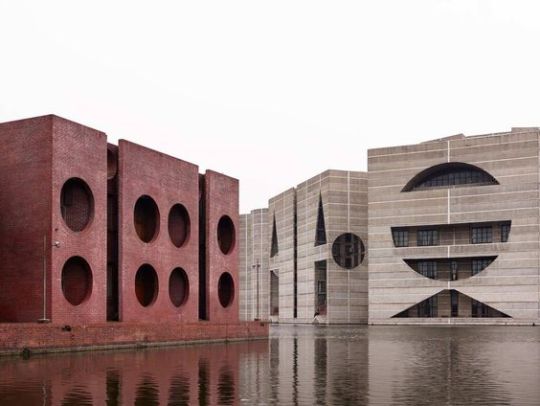
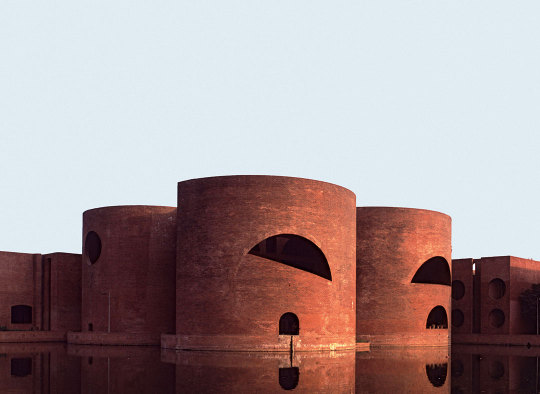
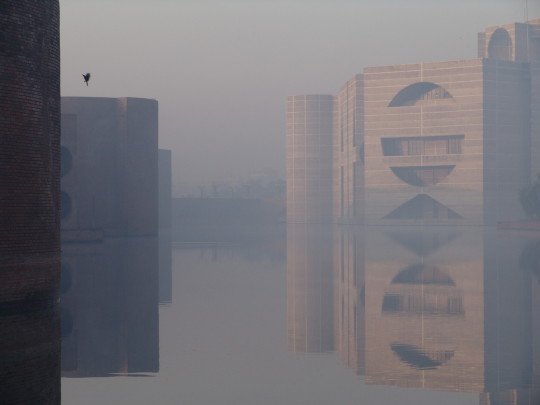
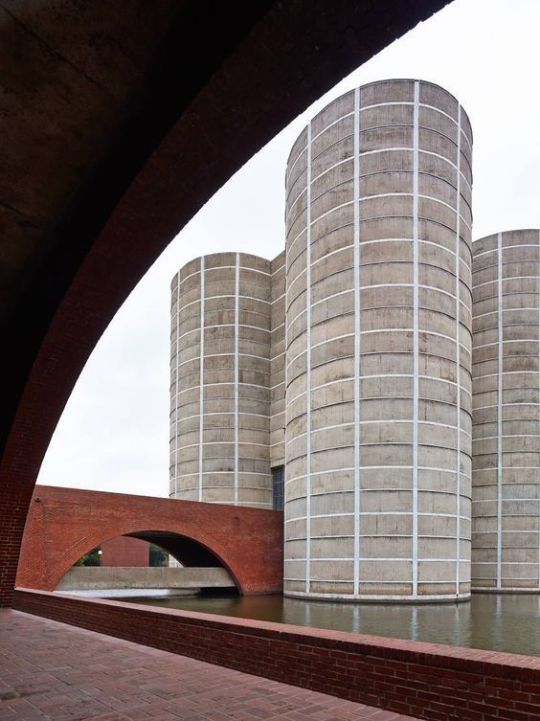

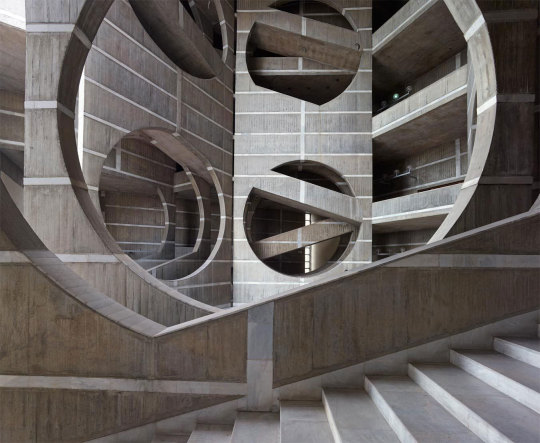

National Assembly Building, Dhaka, Bangladesh - Louis Kahn
-
#Louis Kahn#architecture#building#design#modern architecture#concrete#interiors#form#iconic#modernist#modernism#beautiful architecture#timeless#national assembly#government#dhaka#bangladesh#american architecture#circles#water
1K notes
·
View notes
Link
By Lizz Toledo
Cuba's government officials do not fear the people they represent. It is truly a government by the people and for the people.
When we visited the Capitol in Havana on May 12, there were no armed guards surrounding the building where the National Assembly of People’s Power meets. At the entrance were two guards who waved our delegation of LGBTQ+ activists from the U.S. right in. We were escorted through the building by Sergio Martínez, a deputy of the assembly, who met with us and explained the Cuban political process.
#Cuba#socialism#Havana#National Assembly#LGBTQ#workers#PCC#Sergio Martinez#elections#referendum#Families Code#Lizz Toledo#Struggle La Lucha
19 notes
·
View notes
Text

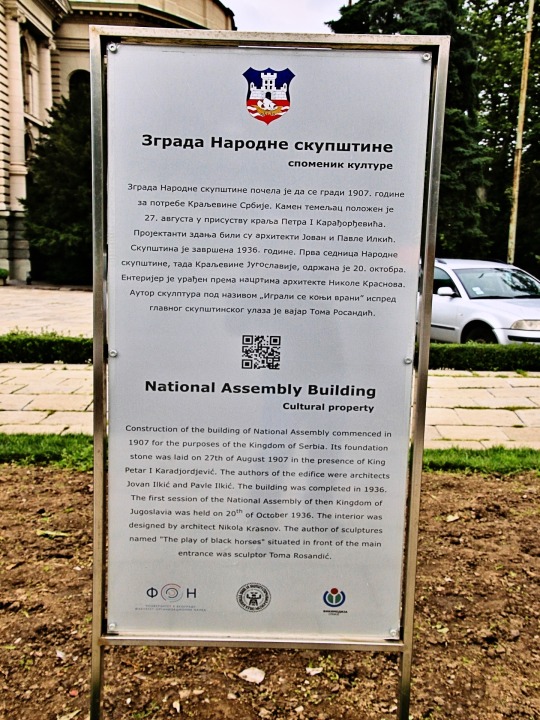

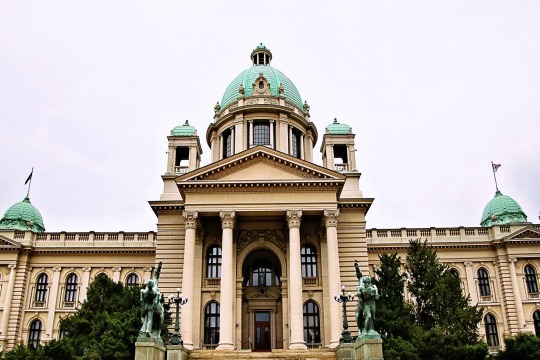
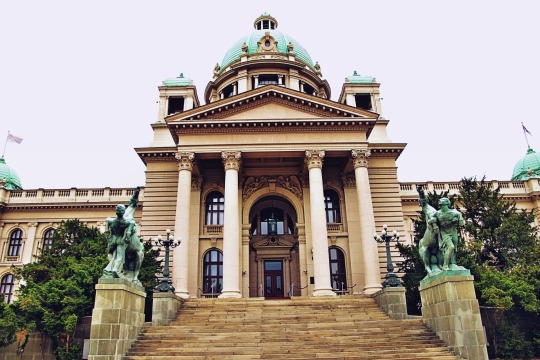

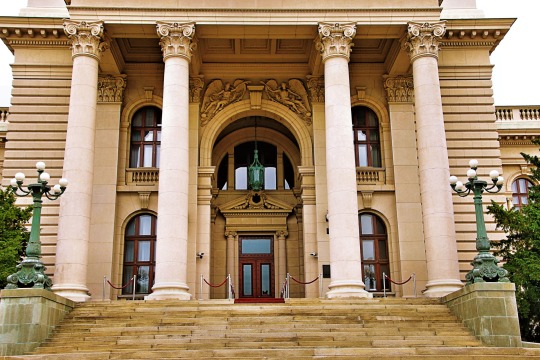
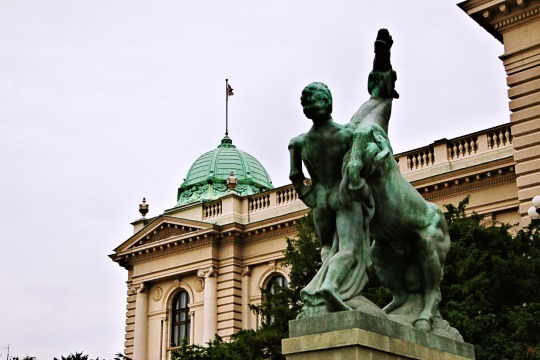


The National Assembly of Serbia ♔ ♕ ♖ ♗ ♘ ♙ 🎲
#house of the national assembly of the republic of serbia#national assembly#play by black horses#statue#cloudysky#nikola pašić square#belgrade#serbia
9 notes
·
View notes
Text
“Only fools, pure theorists, or apprentices fail to take public opinion into account.”

Jacques Necker was a Genevan banker and statesman who served as finance minister for Louis XVI. He was a reformer, but his innovations sometimes caused great discontent.
Born: 30 September 1732, Geneva, Switzerland
Died: 9 April 1804, Geneva, Switzerland
Swiss Origins: Necker was born in Geneva, Switzerland, in 1732. His Swiss background made him a foreigner in the French political landscape, and this sometimes influenced the perception of his policies.
Self-Financed Publication: Necker was known for his publication titled "Compte Rendu," or "Report on the Finances." This document, which detailed the state of France's finances, was unique in that Necker personally financed its publication. This move aimed to showcase transparency and gain public support.
Resignation through Illness: In 1781, Necker resigned from his position as Finance Minister, citing health reasons. His resignation was accepted, but he continued to influence French politics from behind the scenes. He was later recalled to office in 1788.
Criticized by Revolutionaries: Despite being initially celebrated for his efforts to improve financial transparency, Necker faced criticism from revolutionary figures like Maximilien Robespierre. They accused him of being too sympathetic to the monarchy and not fully supporting the revolutionary cause.
Exile in Switzerland: After the fall of the Bastille in 1789 and the escalation of the French Revolution, Necker resigned once again. Fearing for his safety, he sought refuge in Switzerland. His departure marked the end of his active political career.
#Jacques Necker#French Revolution#Finance Minister#Louis XVI#Economic Reforms#Enlightenment#Transparency in Government#Swiss Banker#Statesman#Political Reform#Public Finances#1789 Crisis#National Assembly#Royal Finances#Dismissal from Office#Necker Reports#French Monarchy#Social Unrest#Financial Management#Legacy of Jacques Necker#quoteoftheday#today on tumblr
1 note
·
View note
Text

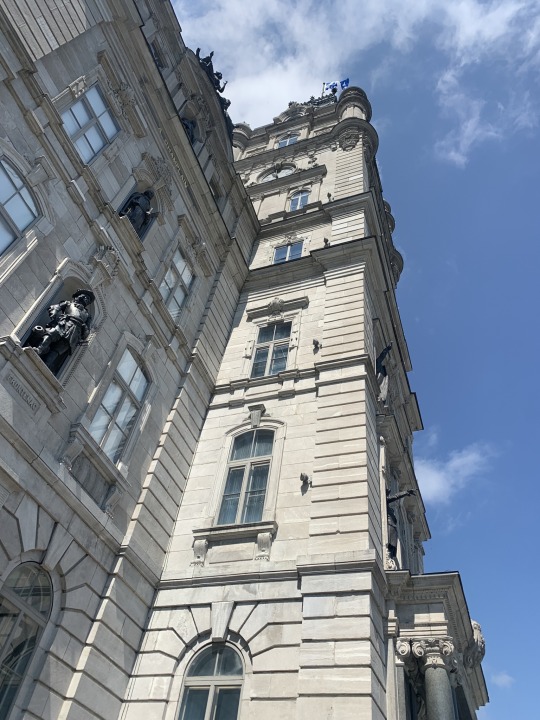

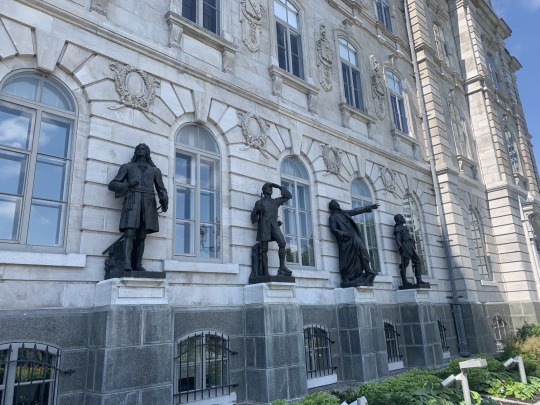
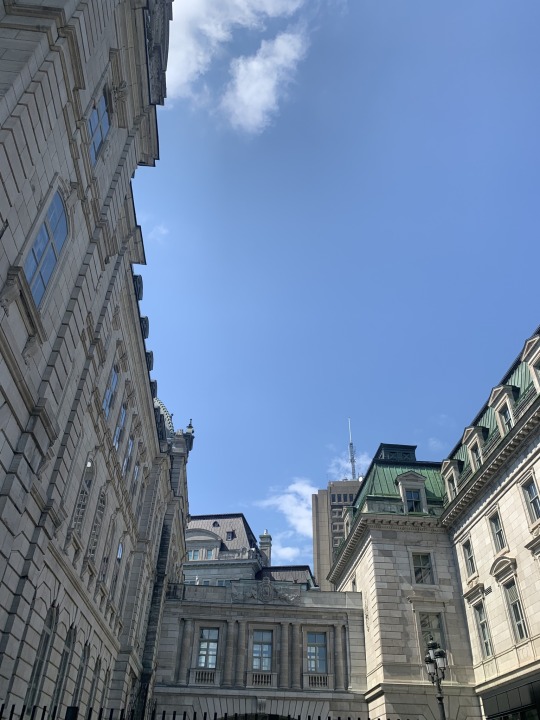
l’assemblée nationals de québec, québec city
3 notes
·
View notes
Text
EDITORIAL: Buhari: A Regime That Fuels Corruption
EDITORIAL: Buhari: A Regime That Fuels Corruption
Overwhelmed by challenges of governance, President Muhammadu Buhari has said that he is eager to leave office. He made the confession when governors of the ruling All Progressives Congress (APC) paid him Sallah homage in Daura, Katsina State. “It has been tough,” he quipped. The president has just 10 months for his wish to come to pass. One of the issues that have constantly gnawed at his…
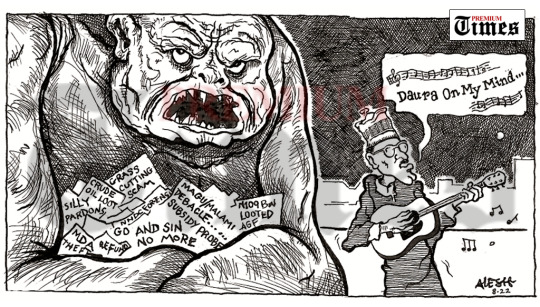
View On WordPress
#All Progressives Congress#Danjuma Goje#Daura#Economic and Financial Crimes Commission#H1#Hon. Sergius Ogun#Katsina state#National Assembly#Nigeria Upstream Petroleum Regulatory Commission (NUPRC)#Oil Producers Trade Section#PREMIUM TIMES#President Muhammadu Buhari
2 notes
·
View notes
Text
Mask of arch-rival, not bottle thrown at ex-Pakistani PM in parliament
Pakistan’s ex-prime minister Nawaz Sharif was almost struck by a mask depicting his arch-rival Imran Khan that was hurled at him in parliament — not a bottle, as social media posts misleadingly claimed. The stunt happened as lawmakers were sworn in following controversial elections. A close-up of the footage from state media shows the mask fly past Nawaz and land on the shoulder of his brother…
View On WordPress
#ex-prime minister#imran khan#National Assembly#nawaz sharif#Pakistan#Prime Minister Shehbaz Sharif#social media posts
0 notes
Text

Mars 2023
0 notes
Text

Today's Flickr photo with the most hits: the Tennis Court Oath, 1789 - a defining moment if the French Revolution. Housed in the Musee Carnavalet, Paris.
0 notes
Text
Macapanton Abbas, Sr. as a Young Man
When my father was born, a bayok or Mranao epic song was composed. The song began with the word Macapanton. That was his name. His full name would be the whole bayok.The year was 1910. Less than 20 years earlier, the Spaniards decided to finally attack Lanao, more than 200 years after they first tried attacking the Pat a Pangampong ko Ranao (the Confederated Principalities of Lanao) during the…

View On WordPress
#alauya alonto#block voting#datu sinsuat balabaran#diosdado macapagal#domocao alonto#duma sinsuat#ibra gundarangin#Macapanton Abbas#moro lawyers#national assembly#pan malayan people&039;s union#philippine commonwealth#philippine law school#tomas cabili#us occupation of mindanao#wenceslao vinzons#young philippines party
0 notes
Text
Let the Poor Breath...
“The alimentary canal of our state ministers does not digest gold.”
Dr. Tai Solarin
There is so much tension in the land, like a simmering volcano waiting for the right pressure…to erupt into ceaseless flow of deadly lava and destruction unfathomable.
National Assembly or Hoardsembly
I listened and watched with dismay, an event that occurred at the National Assembly, under the leadership of…

View On WordPress
0 notes
Text

Decivilisation
Decivilisation is the new buzzword. Emmanuel Macron uses it to describe workers who take to the streets, young people in the suburbs or environmental activists. All of Europe’s right-wing parties use the same word to say that Europe is losing its civilisation and is being replaced by barbaric migrants. “By using the term “decivilisation” to describe the increase in violence in France in recent months, Emmanuel Macron is using controversial and contradictory notions to designate what he considers to be a political reality today”.
The word decivilisation is a concept coined by a German sociologist, Norbert Elias, in 1939 to explain how fascists called into question science, intelligence and civilisation in order to appeal solely to people’s emotions and destroy democracy. Fascists burn books and persecute intellectuals with the pseudo-Darwinist argument that we must favour the strong and stop protecting the weak because it is unnatural.
In France, there has been a deliberate effort to decivilise since the 1990s. In 1991, Jacques Chirac justified violence against immigrants because of the noise and smell. (https://www.ina.fr/ina-eclaire-actu/video/s1152333_001/le-bruit-et-l-odeur-de-jacques-chirac). For the first time, a political leader justified behaving like a bully instead of using the rules of society, and he was elected in 1995. In 2005, Nicolas Sarkozy and the kärcher (https://www.ina.fr/ina-eclaire-actu/nicolas-sarkozy-en-2005-le-terme-nettoyer-au-karcher-est-un-terme-qui-s-impose) reduced the inhabitants of the suburbs to filth. It’s dehumanising part of the population. In 2018, the President of the Republic, Emmanuel Macron, says that all you have to do to find a job is cross the street (https://www.rtbf.be/article/je-traverse-la-rue-et-je-vous-trouve-du-travail-jonathan-chomeur-a-mal-digere-les-conseils-de-macron-10022373). When leaders speak in these terms, they are the actors of decivilisation. When they set up illegitimate authorities where the people have no means of expressing themselves, all that’s left is ecoterrorism or street violence. Debate is no longer possible.
There have never been so many disciplinary sanctions in the National Assembly as under Emmanuel Macron’s term of office. Instead of having manners and dignity, elected representatives, from France Insoumise among others, are behaving like savages. The barbarians are those who cry decivilisation. (https://www.lemonde.fr/les-decodeurs/article/2023/07/21/a-l-assemblee-nationale-un-nombre-record-de-sanctions-depuis-la-reelection-d-emmanuel-macron_6182897_4355770.html). The first to encourage the process of decivilisation come from those who are supposed to set an example and implement ways of organising debates to settle differences non-violently. The same thing is happening in all Western democracies. Elected representatives compete in outrageousness and the extreme right applauds and wins the elections. When you set an example of brutality, you restore fear in people, who then look for a protector. Giorgia Meloni claims to protect the people like a mother protects her children (How are women transforming the modern far right? | ARTE Kreatur: https://youtu.be/Z4OUjrHDlQI). In Sweden, the authorities accepted a demonstration by people burning a Koran (https://www.tdg.ch/la-police-autorise-un-rassemblement-qui-prevoit-de-bruler-le-coran-434500290221). In parliaments, members of parliament get into fistfights, make noise to prevent others from speaking, and so on.
If there is no justice and no police to defend him, the citizen must look for a protector who will use force. Politicians have set society on fire by endorsing violence. The first arsonists are those in positions of responsibility. We need rules to protect citizens and not leave it up to the bullies to decide, and we need to put the means in place to achieve this. It is the absence of civilisation that puts us in danger. We need to keep up the barriers that prevent people from behaving like bullies.
“It’s our society, in its toxic relationship with nature and the Other, that is profoundly violent. We spend gigantic sums of money to kill the soil, poison people, impoverish the countries of the South, slaughter billions of animals and drive migrants back into the sea. The Cameroonian historian Achille Mbembe uses the term “necropolitics” to evoke this modern civilisation littered with corpses, where the “methodical administration of death” mobilises science, the army, industry and technology”.(https://reporterre.net/La-decivilisation-est-une-chance).
Decivilisation”: the history of violence (and its political recuperation): https://www.radiofrance.fr/franceculture/podcasts/l-invite-e-des-matins/decivilisation-histoire-de-la-violence-et-de-sa-recuperation-politique-8351283
Decivilisation: where are the barbarians: https://www.radiofrance.fr/franceculture/podcasts/le-billet-politique/le-billet-politique-du-mardi-30-mai-2023-4923294
------------------------------------------------------------------
Ecoterrorism: https://www.aurianneor.org/ecoterrorism/
Illegitimate authorities: https://www.aurianneor.org/illegitimate-authorities/
Police and justice for the people: https://www.aurianneor.org/police-and-justice-for-the-people/
Nos ancêtres les marrons: https://www.aurianneor.org/nos-ancetres-les-marrons-il-nexiste-quune-seule/
La descivilización: https://www.aurianneor.org/la-descivilizacion/
La décivilisation: https://www.aurianneor.org/la-decivilisation/
#aurianneor#decivilisation#democracy#emmanuel macron#europe#far right#fascism#force#France Insoumise#Giorgia Meloni#identity#immigrants#jacques chirac#National Assembly#nicolas sarkozy#Norbert Elias#right#violence
1 note
·
View note
Text
بجٹ آ گیا : حزب اختلاف کہاں تھی؟
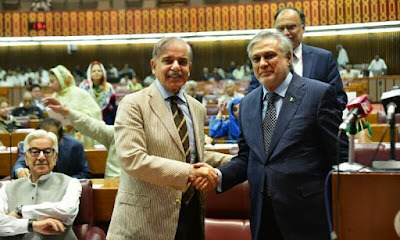
قومی اسمبلی میں وفاقی بجٹ پیش کر دیا گیا، لیکن سوال یہ ہے کہ حزب اختلاف اور قائد حزب اختلاف کہاں تھے؟ روایت تو یہ ہے کہ قومی اسمبلی میں ایک عدد قائد حزب اختلاف تشریف فرما ہوتے ہیں، جنہیں تفنن طبع میں ساتھی پارلیمنٹیرین وفاقی وزیر برائے حزب اختلاف کہتے ہیں۔ کیا ہم جان سکتے ہیں اس بجٹ پر ان کا موقف کیا ہے؟ راجہ ریاض صاحب کے پاس اس بجٹ پر تنقید کرنے کے لیے یا اصلاح احوال کے لیے کچھ تجاویز ہیں؟ یا وہ بھی وزیر خزانہ کو دیکھ کر دل ہی دل میں گنگنا لیتے ہیں: ’ڈار تیرے جانثار بے شمار بے شمار۔‘ نیز یہ کہ ڈار صاحب جواب میں التفات فرماتے ہیں یا وہ اردو کے مسکین اور عزت نفس سے محروم شاعروں کے سنگدل محبوب کی طرح ہیں، جو اپنے چاہنے والوں کو ’پشانتے‘ ہی نہیں۔پارلیمانی جمہوریت صرف حزب اقتدار کا نام نہیں، حزب اختلاف کی بھی اپنی ایک اہمیت ہوتی ہے جو بجٹ جیسے مواقع پر دوچند ہو جاتی ہے۔ ایسے موقع پر اگر حزب اختلاف نام کی کوئی چیز ہی موجود نہ ہو تو یہ نیک شگون نہیں ہوتا۔ بجٹ صرف حکومت کی جانب سے پیش کردہ الفاظ کا گورکھ دھندا نہیں ہوتا، اس میں حزب اختلاف کی مشاورت بھی شامل ہوتی ہے، اس مشاورت کو حکومت سنجیدگی سے نہ لے تو پھر وہ تنقید کر کے عوام کو بتاتی ہے کہ بجٹ میں کیا خامی ہے اور اسے کیسے دور کیا جا سکتا ہے۔
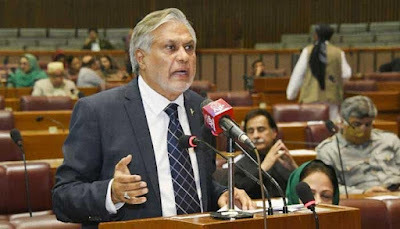
میں کسی اَن دیکھی دنیا کی بات نہیں کر رہا۔ خود سندھ اسمبلی میں حکومت کی حالیہ بجٹ کے حوالے سے یہ قرارداد منظور ہو چکی ہے کہ حزب اختلاف کی سفارشات کا جائزہ لے کر بجٹ بنایا جائے۔ سوال یہ ہے کہ وفاقی بجٹ میں حزب اختلاف کہاں ہے؟ اس کی مشاورت کیا ہوئی؟ اس کا بنایا ہوا متبادل یعنی شیڈو بجٹ کدھر ہے؟ یہ سوالات اصل میں پاکستان تحریک انصاف کے فکری بحران کا اعلانِ عام ہیں۔ کیسی مقبولیت تھی، کاش تھوڑی سی بصیرت بھی منی بس کے روٹ کی طرح ہمراہ ہوتی تو یہ دن نہ دیکھنا پڑتے۔ تحریک عدم اعتماد آتی رہتی ہے، پارلیمانی سیاست کا یہ لازمی جزو ہے۔ عمران پارلیمان میں رہتے تو دھوپ چھاؤں کا آنا جانا لگا رہتا، لیکن یہ سیاسی جماعت تھی ہی کب۔ یہ تو ایک ’کلٹ‘ تھا، جہاں ریڈ لائن ہی نہیں، عقل کا گھنٹہ گھر بھی فرد واحد تھا۔ اس جماعت میں مشاورت کا عالم وہی تھا جو انور مسعود اپنی نظم میں بیان کر چکے۔ کپتان خان انور مسعود کے چوہدری کی طرح پوچھتے تھے: ’اج کیہہ پکائیے؟‘ جواب میں ڈھیر سارے رحمے ایک دوسرے کی طرف دیکھتے اور پھر پکار اٹھتے: ’بجھ لیا کپتان جی چھولیاں دی دال اے۔‘ چھولیاں دی دال یوں کھائی گئی کہ اب بد ہضمی کا شکار انقلابی نونہال پریس کانفرنسوں کے لیے قطاروں میں لگے ہیں۔
یکے بعد دیگرے غلط فیصلے کیے گئے، جیسے کہیں طے کر لیا کہ عقل و شعور کو تو میں نے چھوڑنا نہیں۔ عقل اور سنجیدگی کو دلیپ دوشی سمجھ کر باؤنسر مارے گئے۔ اب ساری پارٹی کا ’مسل پُل‘ ہوا پڑا ہے۔ طنطنے سے استعفے دے کر ایوان کے جو دروازے خود پر بند کیے گئے وہ منتوں ترلوں سے بھی نہیں کھل سکے۔ ملک کے سب سے بڑے صوبے میں حکومت تھی اپنے ہاتھوں ختم کر دی۔ باقی پارٹی بچی تھی، جو غیر سیاسی اور غیر دانشمندانہ افتاد طبع کی نذر ہو گئی۔ خیر خواہانہ تنقید کرنے والوں کو جن کے اشاروں پر گالیوں سے نوازا جاتا تھا وہ خود اب ترین فارم کے آم کھا رہے ہیں۔ سوچنے کی بات ہے کہ اس سارے عمل میں جمہوریت کو کیا ملا؟ سونامی نے آتے وقت بھی جمہوریت اور اہل سیاست کے لیے گنجائش کو محدود سے محدود تر کیا اور اپنی بے بصیرتی سے جاتے ہوئے بھی یہی کام کیا۔ اب ایسا خلا ہے کہ بجٹ دستاویز ایوان میں رکھے ہیں اور حزب اختلاف کا کہیں وجود ہی نہیں کہ اس ڈاکیومنٹ پر کوئی با مقصد گفتگو ہو سکے اور اس میں اصلاح احوال کی کوئی تجویز سامنے آ سکے۔ اور نہیں تو کم از کم اتنا تو ہوتا کہ بجٹ کے دوران تھوڑی رونق ہی لگ جاتی۔
پارلیمان میں کوئی نعرہ بازی ہوتی، کوئی شور مچایا جاتا، پلے کارڈ لے کر وزیر خزانہ کا گھیراؤ ہوتا، ان کی تقریر کے دوران ڈیسک بجائے جاتے۔ کچھ تو ہوتا۔ ایسا ہومیوپیتھک بجٹ بھی بھلا کوئی بجٹ ہوتا ہے۔ پارلیمان سے باہر نکلا تو سامنے ٹریل فائیو تھی۔ ایک دوست ملے۔ ہم نے اکٹھے چائے پی۔ پھر میں نے یہی دکھڑا ان کے سامنے رکھا کہ کہ بجٹ تو آ گیا ہے حزب اختلاف نظر نہیں آ رہی۔ وہ کہاں ہے؟
انہوں نے مسکراتے ہوئے کہا: ’کیا تمہیں حزب اقتدار کہیں نظر آ رہی ہے؟ کیا تم بتا سکتے ہو وہ کہاں ہے؟‘ میں نے گھبرا کر ادھر ادھر دیکھا۔ سامنے مارگلہ کا جنگل تھا۔ جنگل میں ہُو کا عالم تھا۔
آصف محمود
بشکریہ انڈپینڈنٹ اردو
0 notes
Text
1984 – Denis Lortie stormed into the Parliament Building



On 8 May 1984,corporal Denis Lortie entered the Parliament Building in the morning, before government business had begun, killing three government employees and wounding 13 others on his way to the Assembly Chamber.
The National Assembly's sergeant-at-arms, René Jalbert, was informed that there was a man in military uniform with a gun in the Assembly Chamber. Seeing Lortie in uniform, Jalbert showed the gunman his identification as a military veteran, opening a dialogue with him. Jalbert convinced Lortie to allow several employees to leave the premises.



Jalbert talked to Lortie for more than four hours, ultimately promising him that he would be able to surrender to military police (since he was unwilling to surrender to civilian police). At 2:15 p.m., Lortie surrendered to officers of the SQ, Quebec City Police, and the National Assembly security.
#May.8.1984#corporal Denis Lortie#National Assembly#killing 3#wounding 13#René Jalbert#sergeant-at-arms#military veteran#Quebec City#history today
0 notes
Text
Tennis Court Oath
On 20 June 1789, the members of the French Third Estate took the Tennis Court Oath in the tennis court which had been built in 1686 for the use of the Versailles palace.
During the Estates-General Assembly in 1789, the French people, represented by three estates (clergy, nobility, and commoners), convened to address the country's financial crisis and political issues. However, tensions arose between the representatives of the Third Estate (commoners) and the other two estates, as the Third Estate sought equal representation and voting power, which the clergy and nobility were reluctant to grant.
Frustrated by the lack of progress and the inequality within the Estates-General, the representatives of the Third Estate decided to break away and form their own assembly. They called themselves the National Assembly, declaring that they represented the will of the French people. Their goal was to create a new constitution for France and initiate reforms.

However, when the National Assembly arrived at their meeting place in Versailles on June 20, 1789, they found that the doors to their usual meeting hall had been locked by orders of King Louis XVI. Fearing that the king was trying to dissolve their assembly and suppress their efforts, they relocated to a nearby indoor tennis court known as the "Jeu de Paume" to continue their proceedings.
Inside the tennis court, the representatives of the Third Estate, led by figures like Maximilien Robespierre and Camille Desmoulins, took an oath not to disband until they had successfully created a new constitution for France. This oath is now known as the Tennis Court Oath. The oath solidified the resolve of the National Assembly to stand united against the traditional order and marked a crucial turning point in the French Revolution, inspiring people across the country to support the cause for change.
The Tennis Court Oath was a critical step in the revolutionary process. Eventually, it led to further significant events such as the storming of the Bastille, the abolition of feudal privileges, and the transformation of France into a constitutional monarchy, followed by the eventual abolition altogether.
#Tennis Court Oath#French Revolution#History#French History#National Assembly#Estates-General#Versailles#Maximilien Robespierre#Camille Desmoulins#King Louis XVI#Constitutional Monarchy#Revolution#Political Events#18th Century#European History#today on tumblr#deep thinking
2 notes
·
View notes
Link
THE speaker of the National Assembly, Peter Katjavivi, has advocated against any grounds of discrimination, including sexual orientation, saying the rights of all individuals should be protected.
Katjavivi was speaking at the Inter Parliamentary Union (IPU) Assembly in Manama, Bahrain, last week.
The media statement issued on Monday by the National Assembly stated that Katjivivi emphasised Namibia's unwavering commitment to promoting peaceful coexistence and inclusive societies, while fighting intolerance.
“Katjavivi outlined Namibia's legislative interventions aimed at protecting the rights of all individuals without discrimination on any grounds, including race, culture, colour, language, religion, gender, sexual orientation, or political affiliation,” the statement reads.
To illustrate this, Katjavivi mentioned laws enacted by the Namibian parliament such as the Combatting of Domestic Violence Act, the Combatting of Rape Act, and amendments to the Criminal Procedure and High Court Acts.
“These laws promote human rights and ensure access to justice for all.”
#discrimination#race#language#gender#LGBTQ#advocacy#rights#National Assembly#IPU#Bahrain#Namibia#news#via Energy100FM
0 notes